Today is the 55th Anniversary of the Famous Speech by the Right Honourable Enoch Powell on the Royal Titles Bill, 3 May 1953. Enoch Powell always considered this to be his finest speech and was profoundly troubled by the Act that would legally recognize for the first time the disunity of the British Crown, not one glorious and united kingdom over politically independent parliaments, but a divisible crown fragmented across separately sovereign realms.
 When the Statute of Westminster of 1931 gave statutory recognition to the legislative independence of the Parliaments of the Empire it recognized in its Preamble two voluntary limitations upon that independence. Those two limitations were that any alteration in the succession or in the title of the Crown would be made, if at all, only by the agreement of all concerned. It is important that the House should have the words of that Preamble in its mind.
When the Statute of Westminster of 1931 gave statutory recognition to the legislative independence of the Parliaments of the Empire it recognized in its Preamble two voluntary limitations upon that independence. Those two limitations were that any alteration in the succession or in the title of the Crown would be made, if at all, only by the agreement of all concerned. It is important that the House should have the words of that Preamble in its mind.
‘... it would be in accord with the established constitutional position of all the members of the Commonwealth in relation to one another that any alteration in the law touching the Succession to the Throne or the Royal Style and Titles shall hereafter require the assent as well of the Parliaments of all the Dominions as of the Parliament of the United Kingdom ...’
The Statute of Westminster preserved what were then considered to be the two essential unities – the unity of the person of the Monarch, by maintaining that the succession, if changed, should be changed simultaneously and in the same way; and the unity of the identity of the Monarch by maintaining that the title, if changed at all, should be changed simultaneously and in the same way. The second of those two unities, the unity of title, is deliberately departed from by the agreement which this Bill implements. Agreement there has indeed been; but that agreement is only an agreement to differ.
It is a consequence of that agreement to differ that, whereas in the only previous case since the Statute of Westminster where the royal style has been altered, that alteration was specified and written into the statute which made it, the alteration has here been left unspecified both as regards time and as regards nature. Therefore, to see what alteration is proposed in virtue of this Bill, we have to look to the White Paper.
The new style for the United Kingdom which is foreshadowed in the White Paper is not quite the first attempt at a new style which has been made. Over a year ago, on 7th February, when Her present Majesty was proclaimed, she was proclaimed by an unknown style and title and one which at that time had no statutory basis. It is not quite the same title as is proposed in the present White Paper. I am not quibbling over whether the use of a title in a proclamation requires statutory authority or not. I would only remark in passing, however, that it is remarkable that we should have this necessity for Commonwealth agreement and for legislation by the Parliaments if upon that solemn moment of her accession the Queen could be proclaimed by a title unknown to the law.
When we come to the proposed new style for the United Kingdom, I find in it three major changes, all of which seem to me to be evil. One is that in this title, for the first time, will be recognized a principle hitherto never admitted in this country, namely the divisibility of the Crown.
The second feature of the new title is the suppression of the word ‘British’ both from before the words ‘Realms and Territories’ (where it is replaced by the words ‘Her other’) and from before the word ‘commonwealth’, which, in the Statute of Westminster, is described as the ‘British Commonwealth of Nations’.
The third major change is that we have a new expression and concept – the ‘Head of the Commonwealth’. I shall deal with these three major changes in order.
The term ‘Realms’, which is to appear in the new title, is an emphatic statement that Her Majesty is the Queen of a number of separate kingdoms. Hitherto, that has not been this country’s acceptance of the term. For example, in introducing the corresponding Royal and Parliamentary Titles Bill in 1927, the then Home Secretary said:
‘... the word "Realm" is constituted an alternative expression for the "Dominions of the Crown" ’ (Official Report, 9th March, 1927, Vol. 203, Col. 1265).
That had come to be the case by a well-recognized historical process. If you look back at the Act of Succession, you will find a reference there, in respect of England, to ‘the Imperial Crown of this Realm and France and Ireland’. By the process of events the claim to the throne of France was dropped and by the successive Acts of Union the three kingdoms of England, Ireland and Scotland, each with their separate historical origins, were merged into one. There was one realm, over which was ‘the Imperial Crown of the United Kingdom of Great Britain and Ireland and the territories thereto belonging.’
With this unity of the realm achieved by the Acts of Union there grew up the British Empire; and the unity of that Empire was equivalent to the unity of that realm. It was a unit because it had one Sovereign. There was one Sovereign, one realm. In the course of constitutional development, indeed, the Sovereign began to govern different parts of that realm upon the advice of different Ministers; but that in itself did not constitute a division of the realm. On the contrary, despite the fact that he or she ruled his or her dominions on the advice of different Ministers, the unity of the whole was essentially preserved by the unity of the Crown.
That unity we are now formally and deliberately giving up, and we are substituting what is, in effect, a fortuitous aggregation of a number of separate entities. I have not deliberately exaggerated by using the word ‘fortuitous’. Here we find these different entities defining the identity of their Sovereign differently. By recognizing the division of the realm into separate realms, are we not opening the way for that other remaining unity – the last unity of all – that of the person, to go the way of the rest?
I come now to the second major alteration which will be made by the eventual use of the Royal Prerogative – the suppression of the word ‘British’ from the description both of Her Majesty’s territories outside the United Kingdom and of the Commonwealth. Incidentally, and as a minor by-product, this suppression of our nationality has resulted in what is really nonsense. Strictly speaking, to describe the Queen as Queen of the United Kingdom and ‘Her other Realms and Territories’ is meaningless. We describe a monarch by designating the territory of which he is monarch.
To say that he is monarch of a certain territory and his other realms and territories is as good as to say that he is king of his kingdom. We have perpetrated a solecism in the title we are proposing to attach to our Sovereign and we have done so out of what might almost be called an abject desire to eliminate the expression ‘British’. The same desire has been felt – though not by any means throughout the British Commonwealth – to eliminate this word before the term ‘Commonwealth’. I noticed that the Leader of the Opposition in Australia said that he thought the time had come to change the description of the Commonwealth in the Statute of Westminster as the ‘British Commonwealth of Nations’ into the ‘British Commonwealth’.
Why is it, then, that we are so anxious, in the description of our own Monarch, in a title for use in this country, to eliminate any reference to the seat, the focus and the origin of this vast aggregation of territories? Why is it that this ‘teeming womb of royal Kings’, as the dying Gaunt called it, wishes now to be anonymous?
When we come to the following part of the title we find the reason. The history of the term ‘Head of the Commonwealth’ is not a difficult one to trace. I hope I may be forgiven if I do so very briefly. The British Nationality Act 1948 removed the status of ‘subject of the King’ as the basis of British nationality, and substituted for allegiance to the Crown the concept of a number – I think it was nine – of separate citizenships combined together by statute. The British Nationality Act 1948 thus brought about an immense constitutional revolution, an entire alteration of the basis of our subjecthood and nationality, and since the fact of allegiance to the Crown was the uniting element of the whole Empire and Commonwealth it brought about a corresponding revolution in the nature of the unity of Her Majesty’s dominions.
The consequence of that Act immediately followed. If the British dominions were not those territories which acknowledged the Queen, but were an aggregation of separate countries enumerated in a statute, it would be possible not only to add or to subtract territories, but for any of those territories to throw off their allegiance without any consequential result. That was, in fact, what happened.
In the following year, India declared its intention to renounce its allegiance to the Crown and become a republic. Because of that change in the whole basis of British nationality, the decision did not involve the consequences which would have followed as little as a year before. The declaration of the Prime Ministers of 28th April, 1949, included the following passage:
‘The Government of India have declared and affirmed India’s desire to continue with her full membership of the Commonwealth of Nations and her acceptance of the King as the symbol of the free association of those independent member nations and as such the Head of the Commonwealth.’
It was accordingly enacted by the India (Consequential Provision) Act 1949, that the law of this country should continue to apply to India as it would have done if India had not renounced its allegiance to the Crown. The result of that is, as we have found in a queer way in the only definition of the term ‘Commonwealth’ on the Statute Book – it occurs in one of the sections of the Finance Bill 1950, because a Member of the then Opposition put down an Amendment to draw attention to the omission – that the Commonwealth consists of ‘Her Majesty’s dominions and India’.
The status of India resulting from these changes and declarations is an ungraspable one in law or in fact. The Indian Government say that they recognize the Queen as the Head of the Commonwealth. Well, I recognize the Rt. Hon. Member for Walthamstow West [Mr. Atlee] as leader of the Opposition, but that does not make me a Member of the Opposition. When we endeavour to ascertain into what relationship with Her Majesty’s dominions this recognition of the Crown as Head of the Commonwealth has brought India, we find ourselves baulked. It was intended that this relationship should in fact be uninterpretable. It is, therefore, necessary to inquire what is the minimum content which entitles us to recognize unity at all, and then to ask whether that necessary minimum content is applicable in the case of India.
I assert that the essence of unity, whether it be in a close-knit country or in a loosely-knit federation, is that all the parts recognize that in certain circumstances they would sacrifice themselves to the interests of the whole. It is this instinctive recognition of being parts of a whole, which means that in certain circumstances individual, local, partial interests would be sacrificed to the general interest, that constitutes unity. Unless there is some such instinctive, deliberate determination, there is no unity. There may be an alliance. We may have alliance between two sovereign Powers for the pursuit of common interests for a particular or for an undefined period; but that is not unity. That is not the maintenance or the creation of any such entity as we imply by the name ‘Empire’ or ‘Commonwealth’. I deny that there is that element, that minimum basic element, of unity binding India to Her Majesty’s dominions.
I deny that there is present, in that former part of Her Majesty’s dominions which has deliberately cast off allegiance to her, that minimum, basic, instinctive recognition of belonging to a greater whole which involves the ultimate consequence in certain circumstances of self-sacrifice in the interests of the whole.
I therefore say that this formula ‘Head of the Commonwealth’ and the declaration in which it is inscribed, are essentially a sham. They are essentially something which we have invented to blind ourselves to the reality of the position. Although the changes which will be made in the royal titles as the result of this Bill are greatly repugnant to me, if they were changes which were demanded by those who in many wars had fought with this country, by nations who maintained an allegiance to the Crown, and who signified a desire to be in the future as we were in the past; if it were our friends who had come to us and said: ‘We want this’, I would say: ‘Let it go. Let us admit the divisibility of the Crown. Let us sink into anonymity and cancel the word “British” from our titles. If they like the conundrum "Head of the Commonwealth" in the royal style, let it be there.’
However, the underlying evil of this is that we are doing it for the sake not of our friends but of those who are not our friends. We are doing this for the sake of those to whom the very names ‘Britain’ and ‘British’ are repugnant.
Mr. Nicholson (Farnham): I beg my Hon Friend to measure his words and to remember the vast sacrifices and the oceans of blood that India has poured out in the past, and to recognize the deep affection and feeling that exist throughout India towards this country.
Mr. Powell: I, who have had the advantage and privilege of serving with the Indian Army in the War, am not likely to be unmindful of it; but it was an army which owed allegiance to the Crown, an enthusiastic allegiance, which was its very principle of existence and its binding force. That allegiance, for good or for evil, has been cast off, with all that follows.
Now, I am not under any delusion that my words on this occasion can have any practical effect. None the less, they are not, perhaps, necessarily in vain. We in this House, whether we are the humblest of the backbenchers or my Rt. Hon. Friend the First Lord of the Treasury himself [Mr. Churchill], are in ourselves, in our individual capacities, quite unimportant. We have a meaning in this place only in so far as in our time and generation we represent great principles, great elements in the national life, great strands in our society and national being.
Sometimes, elements which are essential to the life, growth and existence of Britain seem for a time to be cast into shadow, obscured, and even destroyed. Yet in the past they have remained alive; they have survived; they have come to the surface again, and they have been the means of a new flowering, which no one had suspected. It is because I believe that, in a sense, for a brief moment, I represent and speak for an indispensable element in the British Constitution and in British life that I have spoken – I pray, not entirely in vain.
Read the full article >>
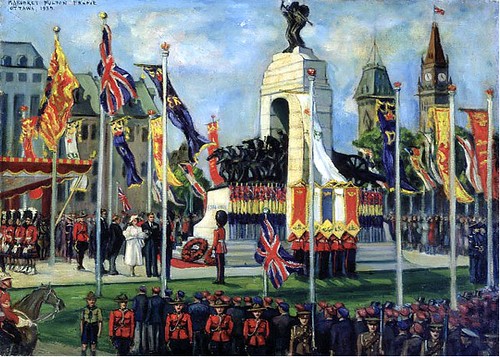
 Vice-Regal Saint:
Vice-Regal Saint: 
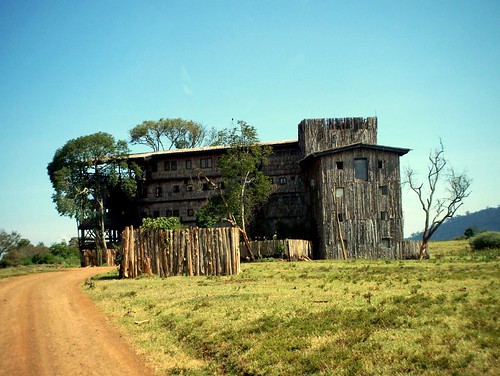
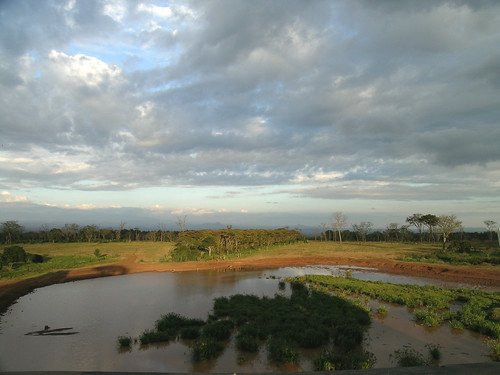


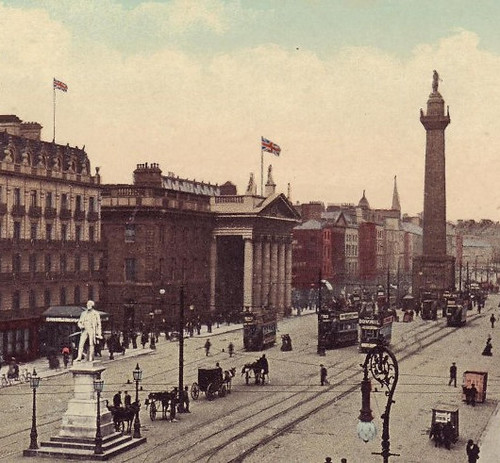

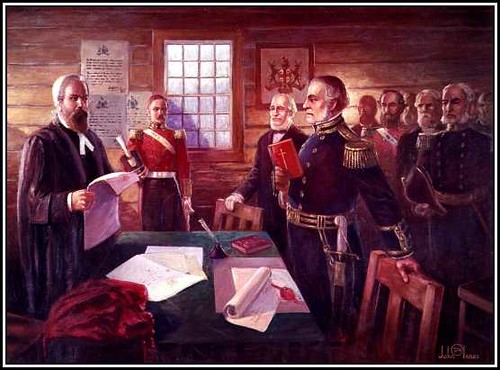
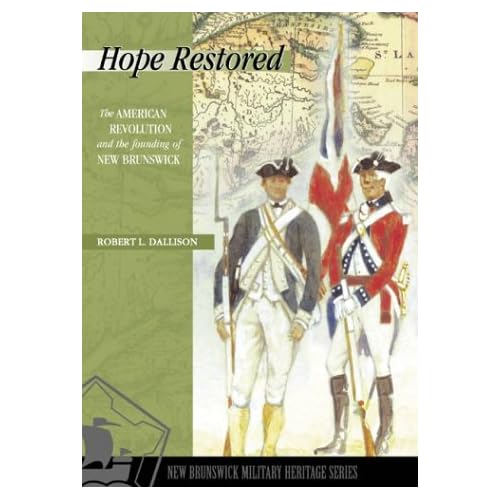


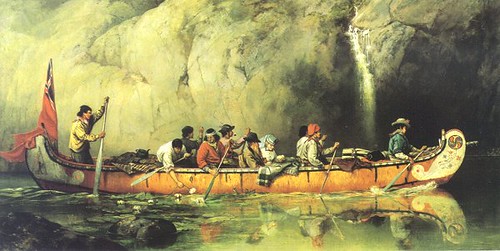














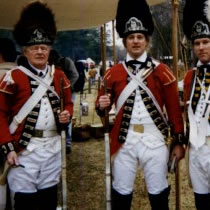










































.gif)

.gif)














































































































